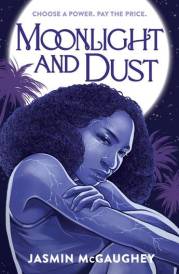Big Pimples
So if chocolate and greasy foods don't make any difference to our facial geology, then how and why do we get zits?
Not only are pimples sore, they also make you very miserable - you feel like a social leper because they mainly strike your face, usually before a job interview or hot date.
The primary cause is oil, or sebum which blocks the tiny pores in your skin, causing a build-up followed by an angry eruption....hello world...a pimple is born!
Pimples range from the common whitehead variety (my mother used to call them custards! Isn't that revolting!), to the annoying blackhead model which, incidentally, have sparked mass sales in pieces of sticking tape called 'pore packs' which literally rip the little beggars right out of your nose. The epidermal, or sebaceous cysts are those big mommas which make a satisfying 'ping' on the mirror when you squeeze them.
There is a reason for everything, and that thing is genetics. Sigh! So is there anything we can do about pimples? We consulted a top Pimple Person...
"We can't prevent them, except if we castrate males!" says dermatologist Dr Stephen Lee from the Australasian College of Dermatologists.
Huh?
The oil glands in your skin are activated after puberty and they need male hormones called androgens to kick off sebum production. Boys usually get pimples between the ages of 15 to 25 years, but women...well...we can get them right up to menopause.
Harvest season normally starts a week out from period time when one big lump appears, then a late twin pops up next to it. You examine them in five different mirrors just to get your head around how large they really are so you can depress yourself good and proper, then resist the urge to s-q-u-e-e-z-e......
Dr Lee says the chin and forehead are common regions for acne because the oil glands tend to be a bit bigger.
Stress and heavy makeup can produce pimples, and sometimes the pill can cause acne, but Dr Lee says this is unusual. There is no evidence that dirt, or your diet causes acne, but occasionally doctors have seen certain sensitivities in some people - again, highly unusual.
Acne in women can be linked to the menstrual cycle. Pimples pop up when there's too many of these androgens floating around our systems. Androgens also cause a deepening of the voice, excessive hair growth, and a higher sex drive, which probably explains why women feel a little sexier around period time.
An imbalance in androgens can also cause polycystic ovary disease. Benign cysts form on the ovaries and cause irregular periods and infertility if undiagnosed. As your ovaries cannot produce an egg, they start pumping out extra testosterone. One of the signs of this disease is acne.
The good news is polycystic ovary disease is treatable, so is acne.
Dr Lee is not a fan of facial scrubs and herbal washes: "They may help to dry the skin a bit but they do a minimal amount of good."
What does work are the many vitamin A-based creams and steroid gels now available. Most people also respond well to a course of antibiotics. Dr Lee does warn us to be persistent though, as it can take 6 months for therapy to work.
There is the danger of building up a tolerance to these treatments, and they cannot be used if you want to have a baby, but fortunately there are alternatives if steroids or antibiotics are not appropriate for you.
If you do suffer from persistent acne, get your doctor to refer you to a good dermatologist. You don't have to be miserable with acne anymore.
We know the answer to this but I thought we'd ask Dr Lee anyway....can we squeeze them?
"No! Leave them alone! But if you must squeeze them, make sure you practice good hygiene."
For more information or your feedback email Michelle@girl.com.au
Not only are pimples sore, they also make you very miserable - you feel like a social leper because they mainly strike your face, usually before a job interview or hot date.
The primary cause is oil, or sebum which blocks the tiny pores in your skin, causing a build-up followed by an angry eruption....hello world...a pimple is born!
Pimples range from the common whitehead variety (my mother used to call them custards! Isn't that revolting!), to the annoying blackhead model which, incidentally, have sparked mass sales in pieces of sticking tape called 'pore packs' which literally rip the little beggars right out of your nose. The epidermal, or sebaceous cysts are those big mommas which make a satisfying 'ping' on the mirror when you squeeze them.
There is a reason for everything, and that thing is genetics. Sigh! So is there anything we can do about pimples? We consulted a top Pimple Person...
"We can't prevent them, except if we castrate males!" says dermatologist Dr Stephen Lee from the Australasian College of Dermatologists.
Huh?
The oil glands in your skin are activated after puberty and they need male hormones called androgens to kick off sebum production. Boys usually get pimples between the ages of 15 to 25 years, but women...well...we can get them right up to menopause.
Harvest season normally starts a week out from period time when one big lump appears, then a late twin pops up next to it. You examine them in five different mirrors just to get your head around how large they really are so you can depress yourself good and proper, then resist the urge to s-q-u-e-e-z-e......
Dr Lee says the chin and forehead are common regions for acne because the oil glands tend to be a bit bigger.
Stress and heavy makeup can produce pimples, and sometimes the pill can cause acne, but Dr Lee says this is unusual. There is no evidence that dirt, or your diet causes acne, but occasionally doctors have seen certain sensitivities in some people - again, highly unusual.
Acne in women can be linked to the menstrual cycle. Pimples pop up when there's too many of these androgens floating around our systems. Androgens also cause a deepening of the voice, excessive hair growth, and a higher sex drive, which probably explains why women feel a little sexier around period time.
An imbalance in androgens can also cause polycystic ovary disease. Benign cysts form on the ovaries and cause irregular periods and infertility if undiagnosed. As your ovaries cannot produce an egg, they start pumping out extra testosterone. One of the signs of this disease is acne.
The good news is polycystic ovary disease is treatable, so is acne.
Dr Lee is not a fan of facial scrubs and herbal washes: "They may help to dry the skin a bit but they do a minimal amount of good."
What does work are the many vitamin A-based creams and steroid gels now available. Most people also respond well to a course of antibiotics. Dr Lee does warn us to be persistent though, as it can take 6 months for therapy to work.
There is the danger of building up a tolerance to these treatments, and they cannot be used if you want to have a baby, but fortunately there are alternatives if steroids or antibiotics are not appropriate for you.
If you do suffer from persistent acne, get your doctor to refer you to a good dermatologist. You don't have to be miserable with acne anymore.
We know the answer to this but I thought we'd ask Dr Lee anyway....can we squeeze them?
"No! Leave them alone! But if you must squeeze them, make sure you practice good hygiene."
For more information or your feedback email Michelle@girl.com.au
MORE
- Resident Evil: What Lies Outside'
- How to Conquer Bad Winter Health Habits
- 1.5 million for 1.5 million Victorians...
- Be U Not a Bully Forum for Parents and Teens
- New Screening Test Recommended To Help Prevent...
- Vitamin D Mushrooms May Solve Health Dilemma
- Gemma Howorth World-First Solates Class Interview
- Federal Government Clarifies Carer Allowance...
- Fiona Clark Sleep Problems Linked to Bullying...
- Elective Surgery and Emergency Care on Increase
- Emotional Stress Proves to be a Pain in the Back
- CPSA applauds Choice IPL and Laser Regulation...
- Karen Kaye Complementary Medicines Are...
- Danielle Stowasser Pain Relief Interview
- Dr Weng Sam Type 2 Diabetes Medication Interview
- Blood Clots and Stroke Fourth Indicator
- An Unhealthy Mouth can lead to Heart Disease
- Sharing MS Diagnosis Key To Retaining Employment
- CanTeen Counselling Service
- Australia Leads The Way With HPV Vaccination Of...





